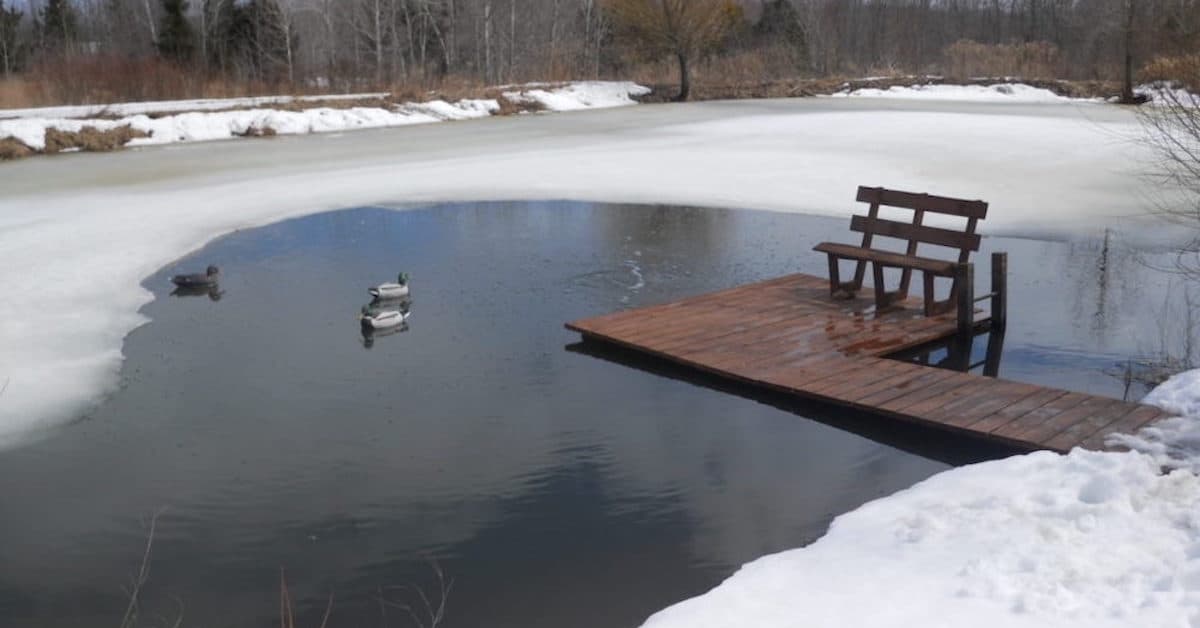Mother Nature vs. Your Pond
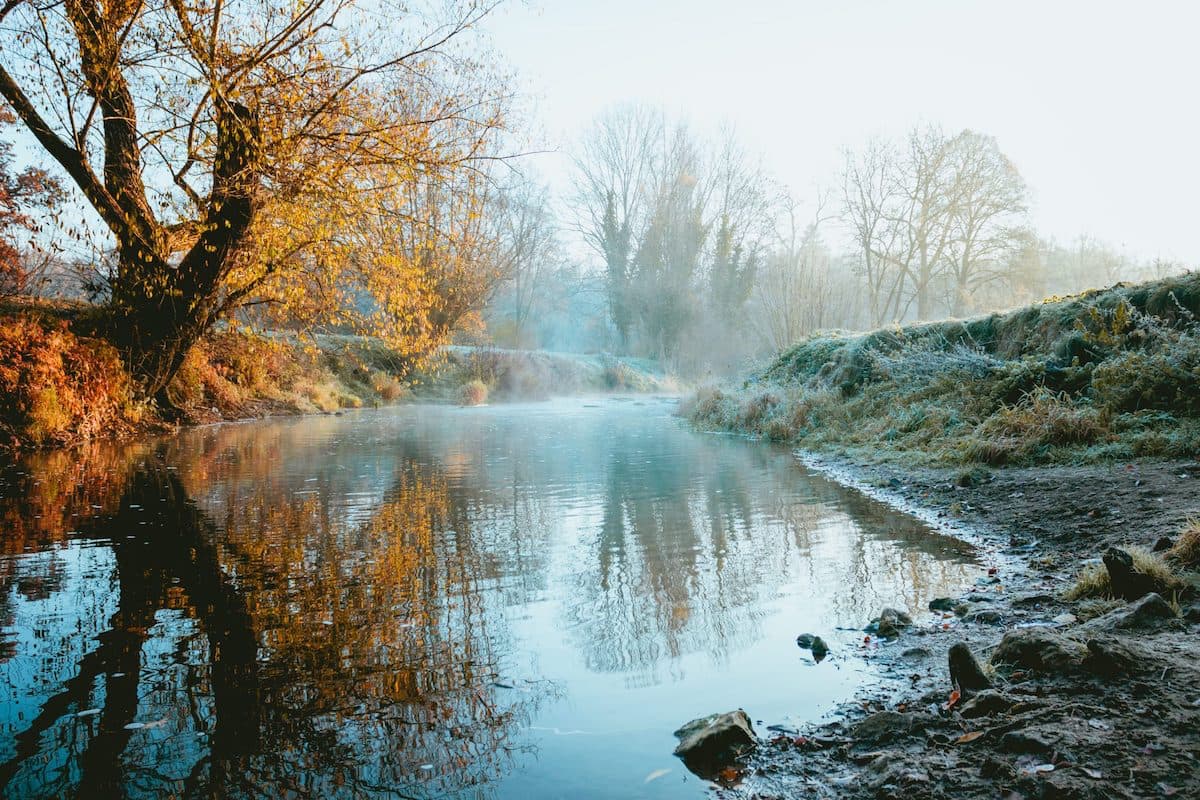
The coldest season of the year is officially upon us. Birds have gone south for the winter, days are getting shorter, and temperatures are continuing to drop. With snow flying and ice forming, we tend to escape into the warm comfort of our homes and let nature do its course. However, you may be forgetting the toll this time of year takes on our lakes and ponds.
Winter can be a very difficult time for your pond and its inhabitants. For those of us in the North, this is the time of year where ponds and lakes have the lowest oxygen levels. This is why caring for your pond in the winter is so critical. In this article, we will explain just what your body of water undergoes and the tools you can use to maintain its health status in the winter months.
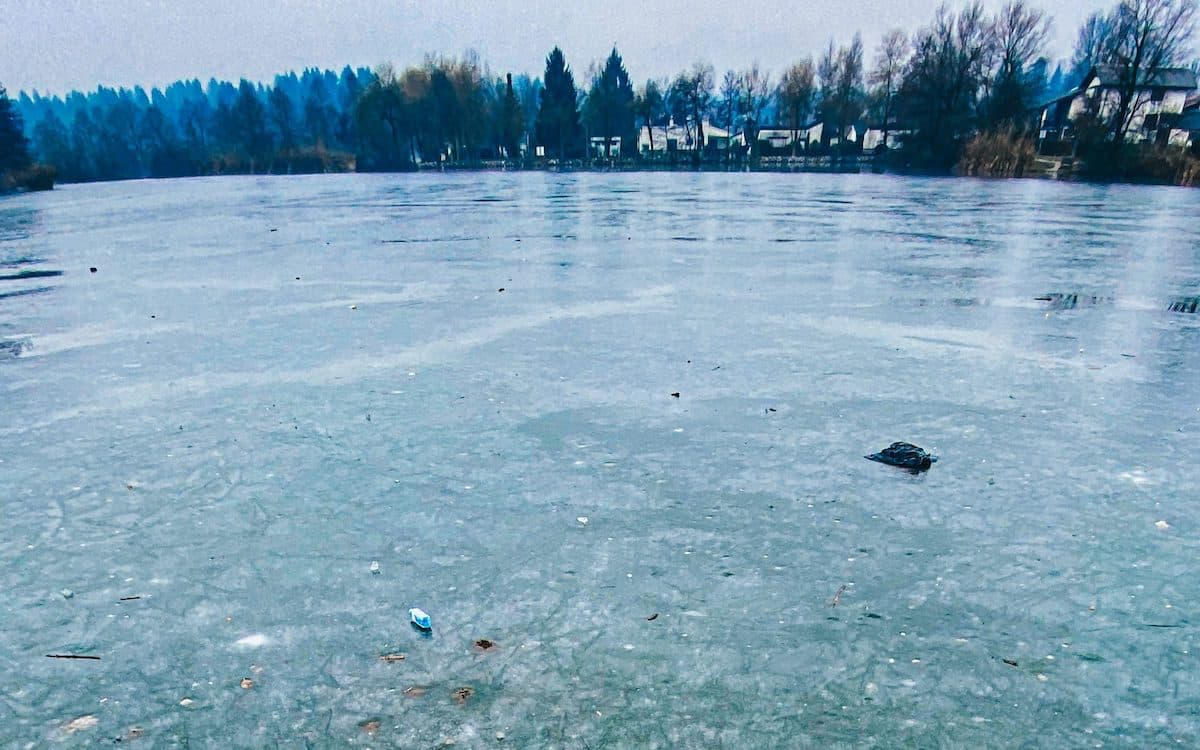
Winter Pond Biology 101
Thick ice and snow layers can block sunlight penetration, preventing photosynthesis. As a result, aquatic plants stop producing oxygen and will eventually die off. This added organic matter will use up what little oxygen is in the water to slowly decompose. Altogether, the low oxygen levels can lead to a dangerous situation for your fish.
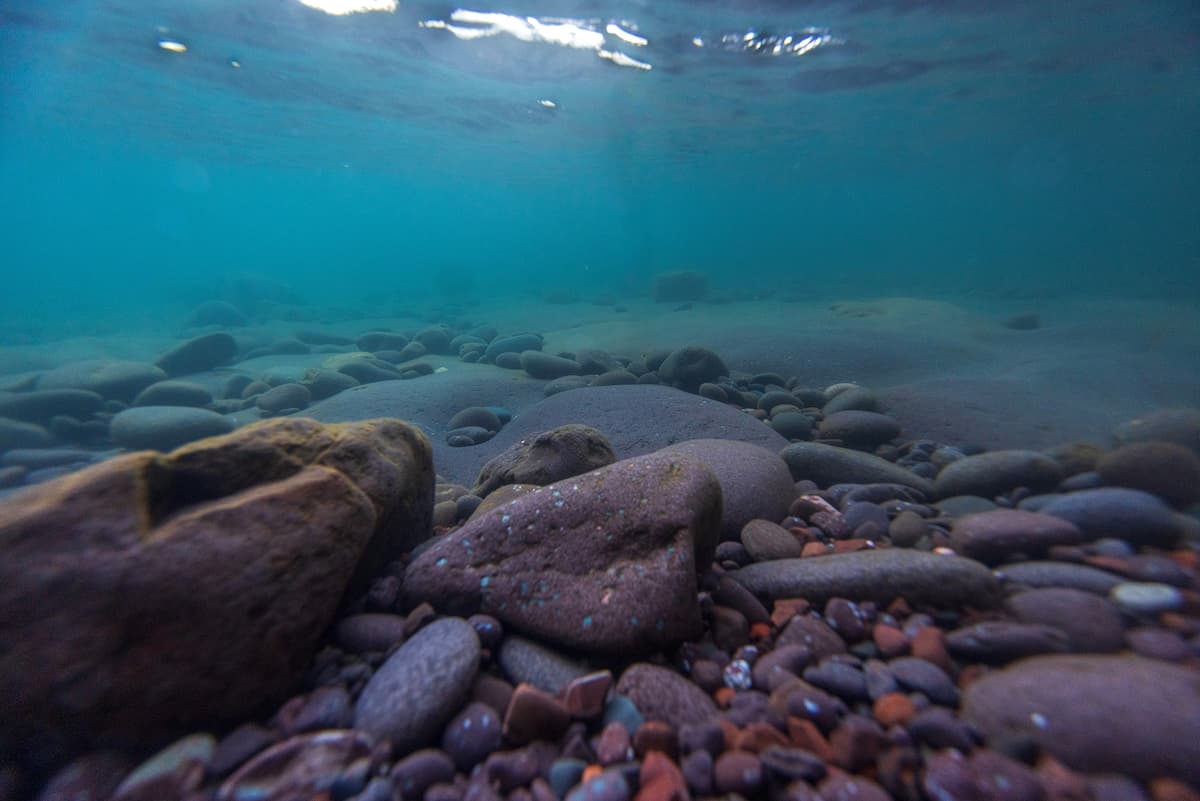
Protect Your Pond’s Ecosystem
Winterkill is very common in some areas of the country. However, severe winters can bring winterkill to areas that are not accustomed to experiencing them. The easiest and most effective way to prevent this from happening is to install a winter pond care system or device that maintains a small amount of open water in your pond or lake. Studies show that only 1-2% of the total surface area needs to remain open to stop a fish kill.
It is crucial to avoid using an aeration device that causes any sort of splashing in the water. The splashing exposes more surface area to the cold air causing water temperatures to drop and, in some cases, can turn a shallow pond into a giant slushy. Instead, it is ideal to use a device that mixes the water beneath the surface such as our de-icers and Robust-Aire Diffused Aeration Systems.
Subsurface Mixing
DE-ICERS
Kasco De-icers work by moving the warm water at the bottom of the pond or lake up to the surface. As a result, the change in temperature melts any existing ice and prevents new ice from forming. By creating an open area, it allows oxygen to dissolve into the water and harmful gases to vent into the atmosphere. This gas exchange is critical to the health of your pond and its ecosystem.

ROBUST-AIRE DIFFUSED AERATION
Kasco’s Diffused Aeration Systems keep an ice-free area by pumping compressed air from a shore mounted compressor. The air travels through self-weighted lines to a diffuser placed at the bottom of your pond or lake. The diffuser then releases micro-bubbles that rise to the surface. As those bubbles rise, they entrain large volumes of warmer, bottom water and lift or carry it to the surface. That warmer water creates the temperature differential needed to melt and prevent ice formation.
When using a diffused aeration system in the winter, you may need to reduce the number of diffusers used to avoid “super-cooling” which can be dangerous to fish and possibly make the ice even thicker. Another tip is to move the diffuser heads closer to the shoreline in the winter. This will help prevent super-cooling since it isn’t drawing water from the deepest part of the pond or lake and it will maintain an open water area that touches the shoreline. Keeping open water at the shoreline is important if any pets or wildlife would happen to fall in the open water area. They can safely swim/walk out if it is touching the shore.
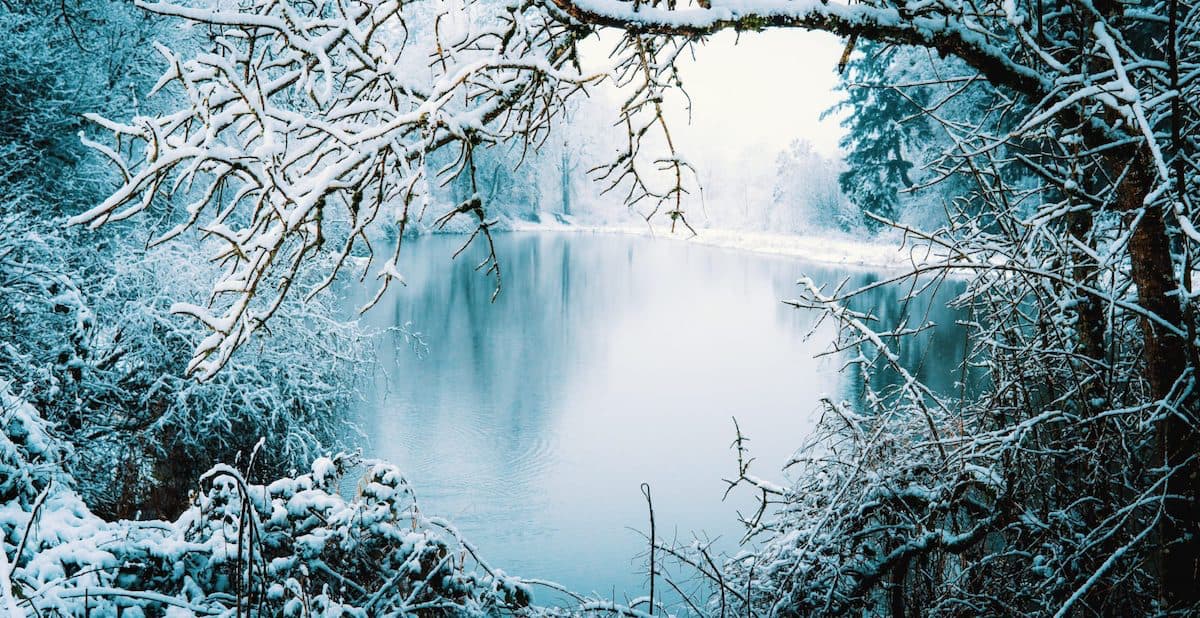
Don’t let mother nature dictate the health status of your pond or lake this winter. Take control with Kasco’s help and care for your pond this winter to let your water body and its inhabitants thrive.
If you have any questions, please email us or call 715-262-4488.
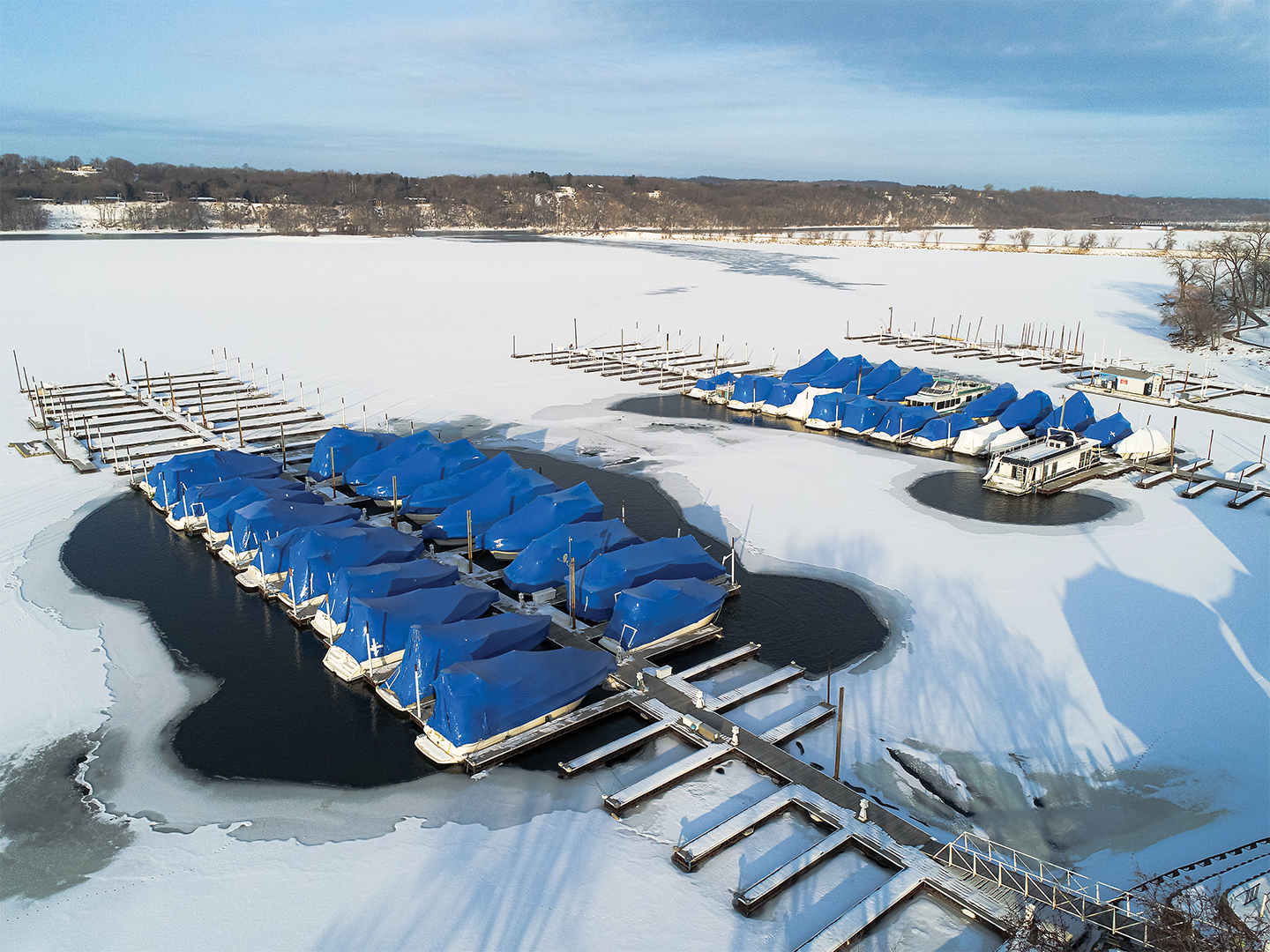 Kasco's Top Five De-icer FAQs
Kasco's Top Five De-icer FAQs
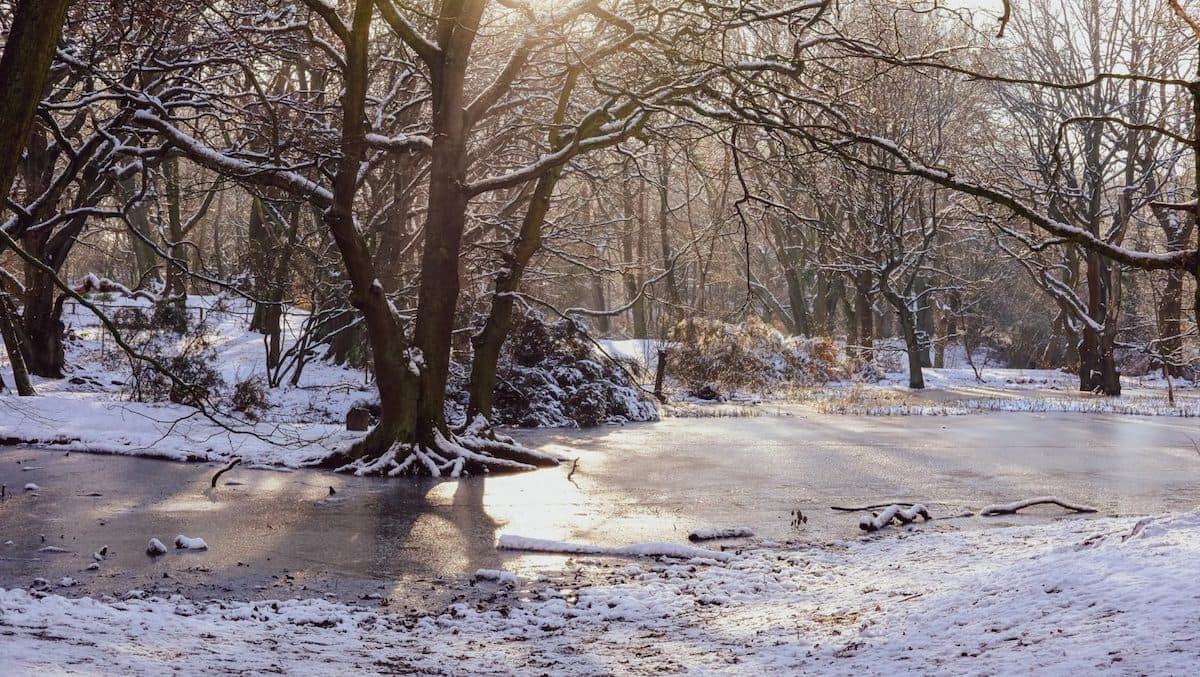 Can I De-ice My Entire Lake?
Can I De-ice My Entire Lake?
